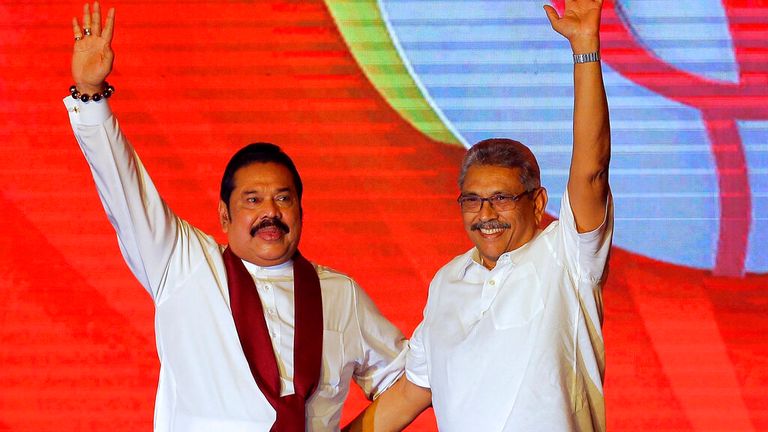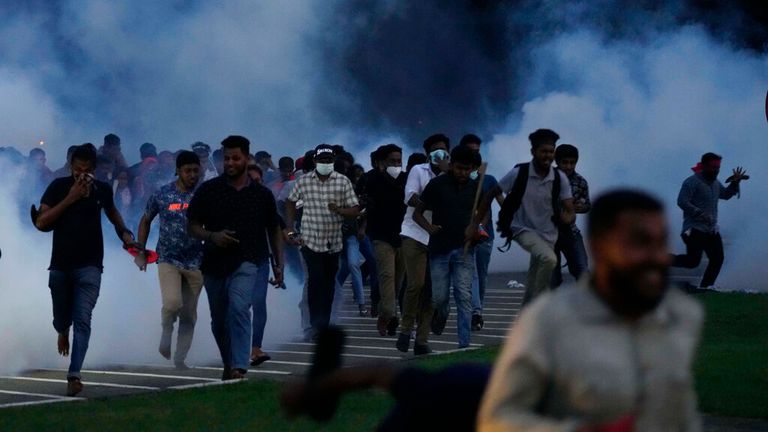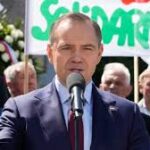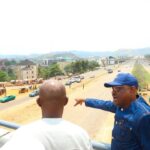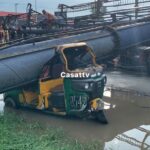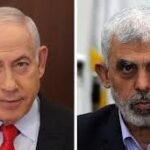[ad_1]
Sri Lanka could run out of fuel and food in the next month, according to the former energy minister.
Udaya Gammanpila was sacked earlier this year for criticising government policy that has taken the country to the brink of bankruptcy.
The former energy minister told Sky News the economic crisis in his country is reaching a tipping point that could lead to the collapse of agriculture, medical services and industrial production, leading to “anarchy”.
He issued the warning before Sri Lanka’s President Gotabaya Rajapaksa declared a state of emergency across the country on Friday evening effective from midnight.
It comes amid widespread protests calling for the resignation of Mr Rajapaksa and his brother Mahinda, who is prime minister, as Sri Lanka faces its worst economic crisis in recent memory.
The government notice said the state of emergency has been declared in the interests of public security.
It is the second time in five weeks the president has declared a state of emergency, which gives him sweeping powers and allows him to control protests.
The latest move comes as a general strike across Sri Lanka has brought business and transport in the capital Colombo to a halt, and saw police use water cannon and tear gas against demonstrators.
Gotabaya and Mahinda Rajapaksa are accused of nepotism, and blamed by many for a crisis that has seen Sri Lanka’s usable foreign currency reserves dwindle to less than $50m (£40m), leaving it reliant on the World Bank and International Monetary Fund, and India and China, for credit required to import fuel, food and cooking gas.
The Rajapaksa brothers have faced protests for more than a month amid fuel shortages, soaring medicine and food prices, and rolling blackouts imposed to ration power supplies.
Earlier this week the finance minister admitted the country has barely enough money to buy a single tanker load of fuel, leaving it almost entirely reliant on a credit line from India for petrol, diesel and kerosene.
Sri Lanka is in negotiations with the World Bank and International Monetary Fund, and with its major creditors India and China.
Mr Gammanpila, who was sacked in March for speaking out against government monetary policy, said the consequences of the economic crisis could be dire.
“Basically, Sri Lanka right now has no foreign currency reserves whatsoever,” he said.
“There is a risk of fuel shortages in the near future because in the last three months we have had the benefit of India’s credit line, which supplied Sri Lanka with $500m worth of petroleum products
“That’s now being fully utilised, so we have a risk of running out of all kinds of fuel. It’s like a man without blood, the body dies. The situation is terrible.”
Read more:
Sri Lanka has never defaulted on its debt – is that about to change?
He also warned of food shortages, caused in part by a disastrous decision to ban chemical fertiliser imports last year. Relying only on organic products saw crop yields plummet, leaving an abundant island no longer self-sufficient in fruit and vegetables, and causing dramatic price rises for staples including rice.
“In the near future Sri Lanka will have to import vegetables, fruits and grains such as rice and maize for consumption. But because of the foreign currency shortage, we are not in a position to do that right now. In the coming months, definitely, there will be a food shortage.”
Following an emergency cabinet meeting it was reported that the president has asked his brother to resign as prime minister.
[ad_2]
Source link
